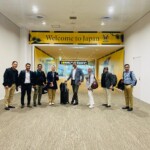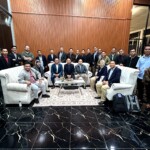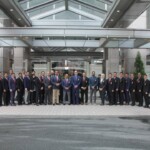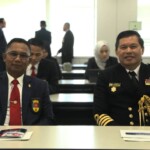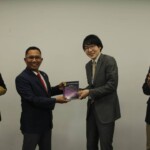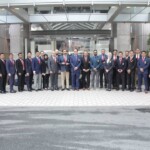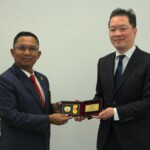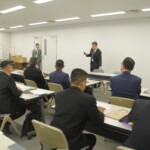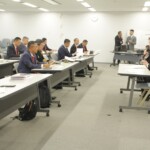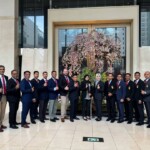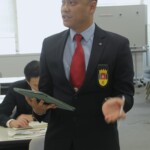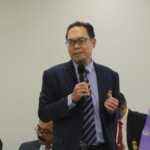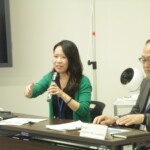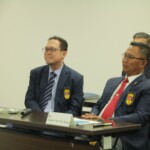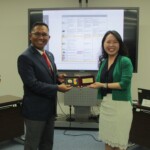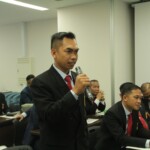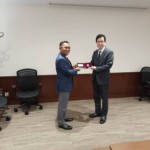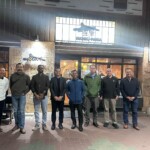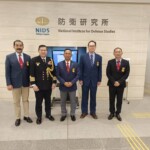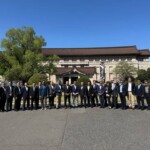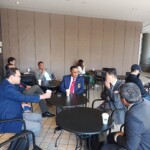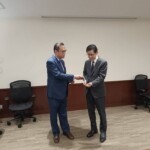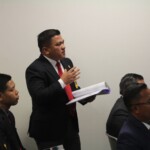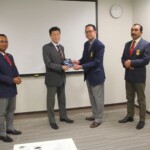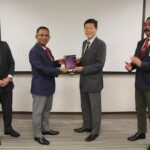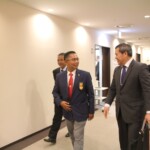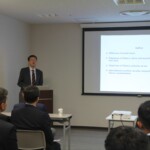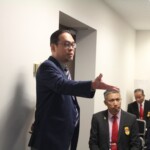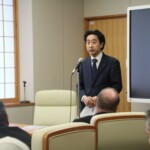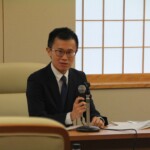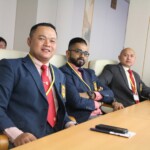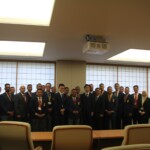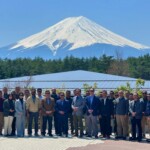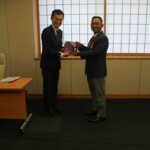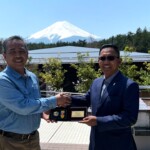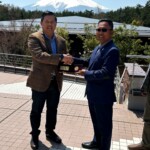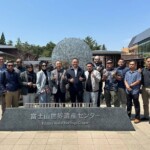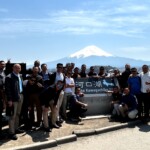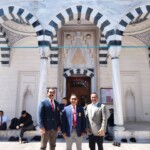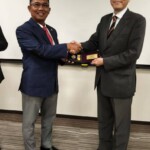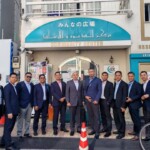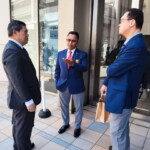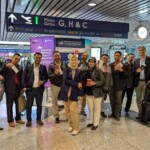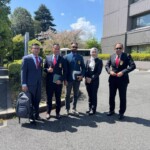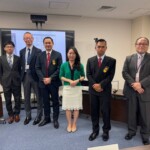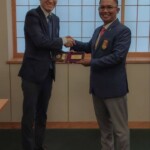Japan, 14 – 18 Apr 25. The Malaysian Armed Forces Staff College (MAFSC) conducted a Comparative Study Research (CSR) visit to Japan to enhance strategic insights among Course Participants (CP). Led by Brig Gen Zamsari bin Abu Hasan, the delegation engaged with Japan’s Ministry of Defence, National Institute for Defence Studies (NIDS), Research Institute for Peace and Security (RIPS), and Ministry of Foreign Affairs (MOFA). Key topics included Japan’s defense strategy, the Japan–US alliance, maritime security, and ASEAN unity. Cultural visits to historical sites and urban centers enriched CP’s understanding of Japan’s soft power. The visit successfully aligned academic theory with strategic practice.
Arrival – 14 Apr 25
The Malaysian Armed Forces Staff College (MAFSC) delegation arrived in Tokyo, Japan, on 14 April 2025 for their Comparative Study Research (CSR) visit. Led by Brig Gen Zamsari bin Abu Hasan, the group consisted of 31 participants. Upon arrival, the team took the day to acclimatise, regroup, and prepare for the intensive professional and academic engagements ahead. This initial period was crucial for adjusting to the new environment, reviewing the visit schedule, and ensuring all participants were ready for the upcoming sessions that aimed to deepen strategic understanding and broaden regional insights.
Visit to Ministry of Defence, Japan – 15 Apr 25
The delegation visited Japan’s Ministry of Defence (MOD) for their first professional engagement. Two key presentations were delivered: Mr. Kazumi Naganuma outlined Japan’s National Security and Defense Strategy, emphasising constitutional pacifism and defense buildup programs, while Mr. Keira Shimizu explained the evolving Japan–US defense cooperation amid regional security challenges. These sessions provided participants with a comprehensive view of Japan’s security policies, military posture, and alliance strategies, offering crucial insights into how Japan navigates its constitutional constraints while adapting to a dynamic Indo-Pacific security environment.
Visit to National Institute for Defence Studies (NIDS) – 15 Apr 25
Later on 15 Apr, the delegation visited the National Institute for Defence Studies (NIDS), where Brig Gen Zamsari paid a courtesy call on NIDS President Mr. Manabu Imakyurei. This strengthened institutional ties between MAFSC and NIDS. Ms. Riho Aizawa, a Fellow Researcher, delivered an insightful lecture on Japan’s Defense Reform and Strategic Vision. She discussed Japan’s evolving defense policies, strategic imperatives, and long-term reform agendas. This session enriched participants’ understanding of Japan’s future security landscape and strategic direction. The visit solidified academic collaborations and offered deeper analytical perspectives on Japan’s defense modernisation efforts.
Cultural Visits: National Museum of Japan and Ameyoko Yokocho – 15 Apr 25
Following the academic engagements, the delegation visited the National Museum of Japan to explore the nation’s rich history and cultural heritage. This visit deepened participants’ appreciation for Japan’s ancient civilisation and how historical narratives shape national identity. Later, the group experienced Ameyoko Yokocho Street, immersing themselves in Tokyo’s vibrant street culture. Through this exposure to everyday life, culinary diversity, and social interactions, participants gained valuable insights into Japan’s soft power. These cultural engagements highlighted the connection between societal values and international image-building, enriching the overall strategic understanding beyond traditional defense studies.
Visit to Research Institute for Peace and Security (RIPS) – 16 Apr 25
On day-3, the delegation visited the Research Institute for Peace and Security (RIPS). Brig Gen Zamsari and RIPS President Professor Hideshi Tokuchi shared a candid discussion before the formal session. Professor Hideshi then presented a lecture titled “Maritime Security and ASEAN Unity under US Strategy,” emphasising Japan’s National Security Strategy, defense buildup, and alliance foundations. The presentation provided a nuanced view of maritime security challenges in the East China and South China Seas, regional cooperation, and ASEAN dynamics. Participants gained a strategic perspective on how Japan and the U.S. collaborate to maintain regional security.
Visit to Ministry of Foreign Affairs (MOFA) Japan – 16 Apr 25
The delegation continued to Japan’s Ministry of Foreign Affairs (MOFA), where Mr. Takuya Akiyama briefed them on “Japan–US Multilateral and Bilateral Security Cooperation.” His presentation covered Japan’s diplomatic efforts to build multilayered security frameworks in the Indo-Pacific, balancing defense initiatives with regional diplomacy. Participants learned how Japan promotes a networked security approach involving ASEAN, Quad countries, and the broader international community. This engagement highlighted the synergy between Japan’s diplomatic and defense strategies, reinforcing participants’ understanding of multilateral cooperation as an essential element of regional stability and security management.
Interfaith and Youth Culture Visits – 16 Apr 25
In the afternoon, the delegation visited Camii Mosque in Tokyo, fostering interfaith understanding and learning about Japan’s multicultural inclusivity. The visit provided insight into how Japan accommodates religious diversity within its society. Afterwards, the group explored Takeshita Street in Harajuku and the world-famous Shibuya Crossing. These excursions offered a glimpse into Japan’s dynamic youth culture, consumer behavior, and urban lifestyle. Through these experiences, participants broadened their perspective on Japan’s social fabric, economic vitality, and cultural influence—an important complement to their strategic and security-focused learning throughout the visit.
Cultural Immersion at Mount Fuji and Oishi Park – 17 Apr 25
On day-4, the delegation visited the Fujisan World Heritage Center to appreciate Mount Fuji’s cultural significance in Japan’s national identity and soft power diplomacy. Participants learned how Japan leverages its natural heritage for international image-building and domestic unity. Later, at Oishi Park near Lake Kawaguchiko, they experienced the breathtaking scenery of cherry blossoms set against Mount Fuji’s majestic backdrop. These visits provided a serene environment for strategic reflection, highlighting the interplay between culture, environment, and national branding. This immersive experience helped reinforce participants’ understanding of Japan’s comprehensive approach to international engagement. The visit marked the end of CSR Visit programme to Japan.
#puspahanas
#mafsc.my
#MCSCJ_Ser54

